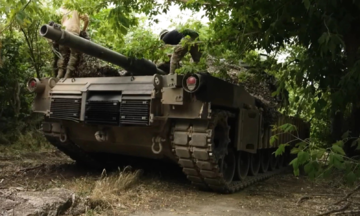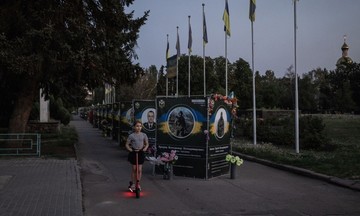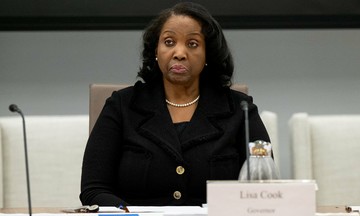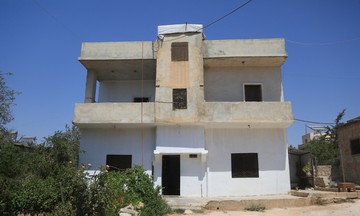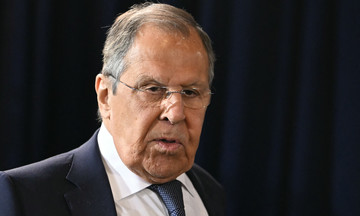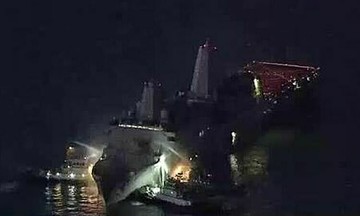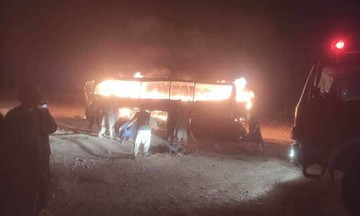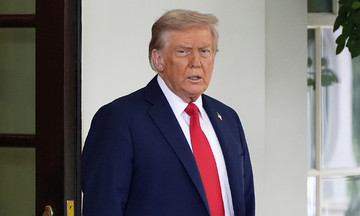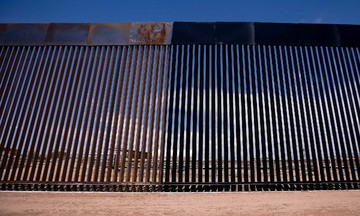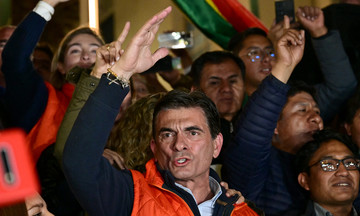During a meeting with Ukrainian President Volodymyr Zelensky at the White House on 18/8, former US President Donald Trump claimed to have helped end six wars and expressed his hope for a swift peace agreement between Russia and Ukraine. He added that he initially thought the war in Ukraine would be "the easiest of all to solve, but it turned out to be very difficult".
This is seen as part of Trump's efforts to win a Nobel Peace Prize, highlighting conflicts resolved during his first term.
Armenia-Azerbaijan conflict
Azerbaijani President Ilham Aliyev and Armenian Prime Minister Nikol Pashinyan met at the White House earlier this month, signing a peace agreement in Trump's presence.
The decades-long conflict between Armenia and Azerbaijan centers on the Nagorno-Karabakh territory. The conflict peaked in 9/2023 when Azerbaijan launched a military campaign to reclaim Nagorno-Karabakh from Armenian-backed separatists, ending nearly three decades of territorial division. Three months later, Armenia and Azerbaijan issued a joint statement expressing their intent to negotiate a peace treaty.
Following the peace agreement, Trump declared that the two neighboring countries would be friends and maintain their relationship long-term, despite concerns about the agreement's ability to ensure stability.
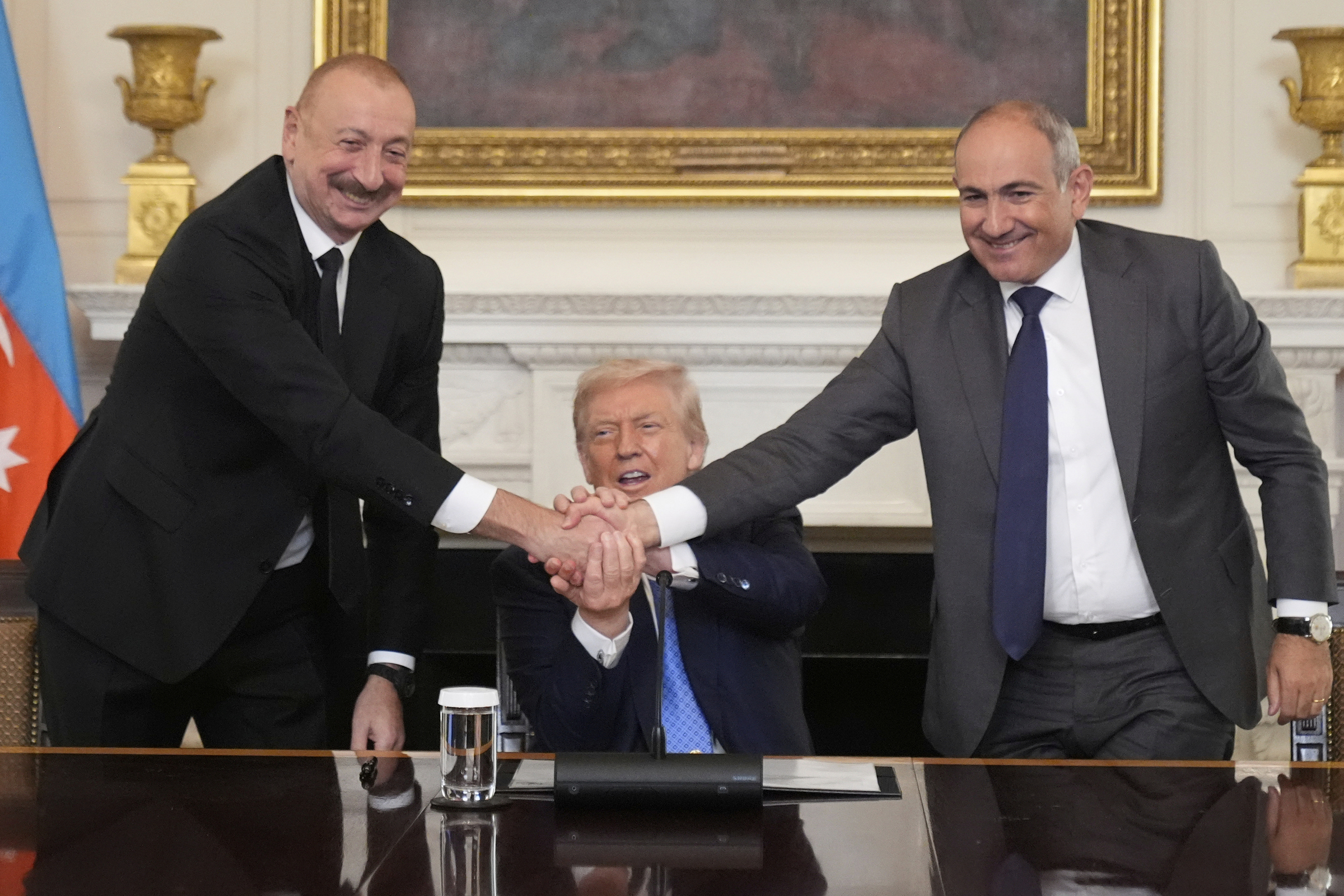 |
From left: Azerbaijani President Ilham Aliyev, US President Donald Trump, and Armenian Prime Minister Nikol Pashinyan at the White House on 8/8. Photo: AP |
From left: Azerbaijani President Ilham Aliyev, US President Donald Trump, and Armenian Prime Minister Nikol Pashinyan at the White House on 8/8. Photo: AP
Democratic Republic of Congo - Rwanda conflict
Forces from the Democratic Republic of Congo and Rwanda clashed across their border for years, displacing millions and causing a severe humanitarian crisis. In June, the two countries signed a US-brokered peace agreement at the White House.
Trump described the conflict as "one of the worst wars" in the world, with the parties "fighting for years and using machetes". He said the peace deal not only ended years of bloody conflict but also created an opportunity for the US "to exploit a lot of minerals in Congo".
"Today, the violence and destruction have ended. The entire region is entering a new chapter of hope and opportunity, harmony, prosperity, and peace," Trump said.
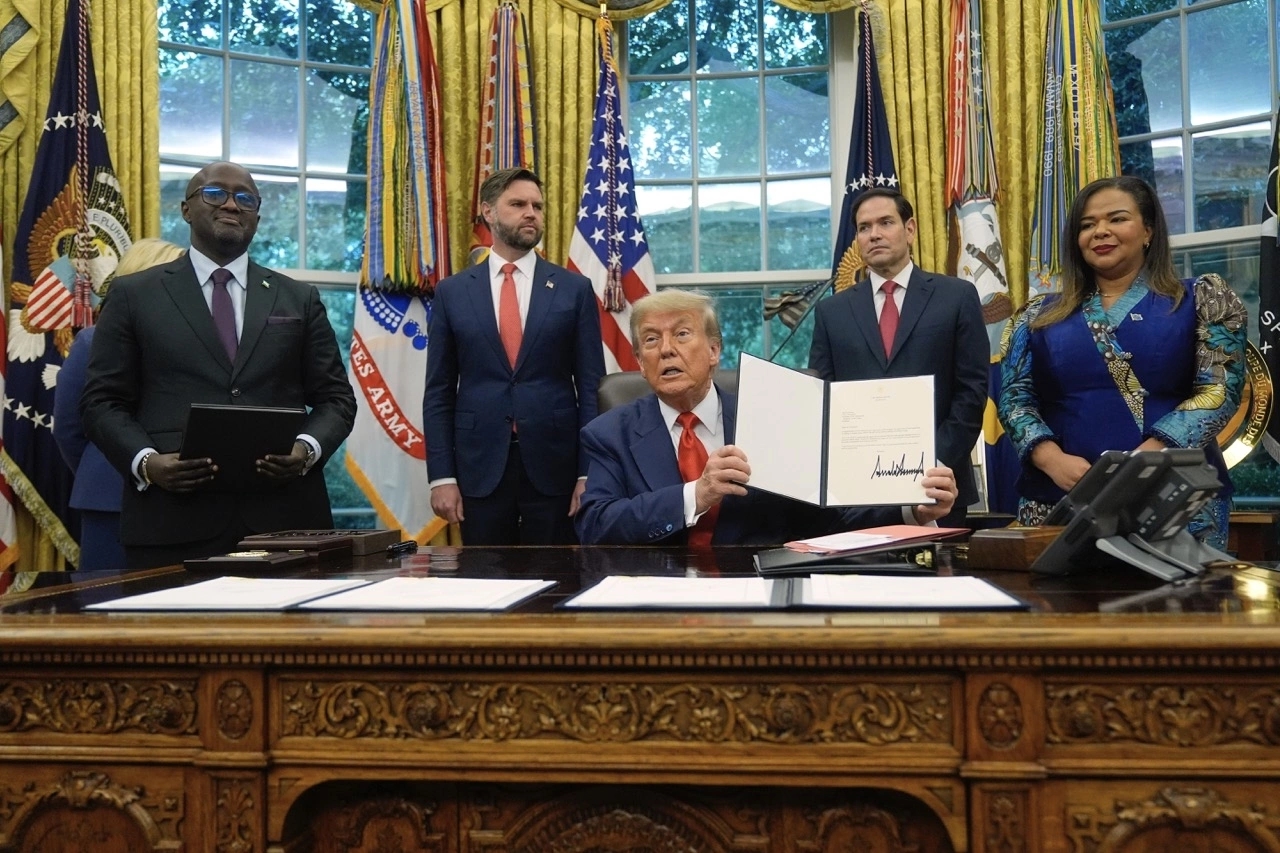 |
Representatives from Rwanda and the Democratic Republic of Congo at the White House to sign a peace agreement, witnessed by Trump, on 27/6. Photo: AP |
Representatives from Rwanda and the Democratic Republic of Congo at the White House to sign a peace agreement, witnessed by Trump, on 27/6. Photo: AP
Israel-Iran conflict
The conflict between Tel Aviv and Tehran erupted on 13/6, when Israel launched a preemptive strike on Iran with "Operation Rising Lion", killing several high-ranking commanders and nuclear scientists. Iran retaliated with "Operation True Promise 3". The fighting resulted in over 430 deaths and more than 3,500 injuries in Iran, and 25 deaths and over 2,500 injuries in Israel.
On the morning of 22/6, the US intervened, dispatching stealth bombers to attack three Iranian nuclear facilities. Following the airstrike, Trump called for negotiations with Iran and announced a ceasefire agreement between Tel Aviv and Tehran.
However, after the ceasefire, Tel Aviv declared its right to further attacks if Tehran restarted its nuclear program, raising concerns about a potential resurgence of the conflict.
India-Pakistan conflict
Four days of fighting erupted between India and Pakistan in May, the most serious clash between the two nuclear-armed South Asian nations since 1999.
On 10/5, Trump announced on Truth Social that New Delhi and Islamabad had agreed to a ceasefire "after a long night of US-mediated negotiations". He added that he leveraged US trade issues to compel the two countries to cease hostilities.
Pakistan thanked Trump for mediating and nominated him for the Nobel Peace Prize. India, however, stated that its ceasefire agreement with Pakistan was not brokered by the US, as Trump claimed, straining US-India relations.
Cambodia-Thailand border conflict
Tensions between Cambodia and Thailand escalated from 23/7, with fighting erupting near the Ta Moan Thom temple on the morning of 24/7 and spreading along the border. Both sides exchanged heavy fire, each accusing the other of initiating the attack. This was the most serious clash between the two neighbors in over 10 years, resulting in 33 deaths.
Trump held separate phone calls with Cambodian and Thai leaders, warning of consequences if the fighting continued. Under US pressure, the two sides signed an unconditional ceasefire agreement in Malaysia, ending the five-day conflict.
Serbia-Kosovo tensions
Kosovo, a breakaway territory of approximately 10,800 square kilometers in southwestern Serbia, declared independence in 2008. Serbia does not recognize Kosovo's independence and claims sovereignty over the region. Ethnic and territorial disputes between the two sides have simmered for decades.
During his first term in 2020, the Trump administration mediated a short-term peace agreement, the Washington Agreement, normalizing economic relations between Kosovo and Serbia. However, tensions between the two nations remain unresolved.
A White House spokesperson said that in addition to these six conflicts, Trump also helped resolve a "potential war" between Egypt and Ethiopia.
In 2020, during Trump's first term, Egypt and Ethiopia clashed over Ethiopia's Grand Ethiopian Renaissance Dam project on the Nile River. Egypt, which relies on the Nile for 97% of its irrigation and drinking water, opposed the project.
Although the dispute did not escalate into armed conflict and no peace agreement was signed, the White House maintains that it should be considered a "conflict resolved by Trump". Trump also claimed a war would have occurred without his intervention.
The US initially attempted to mediate an agreement, but Ethiopia withdrew from negotiations. Trump then suspended some aid to Ethiopia. Ethiopia, in turn, accused Trump of "inciting war" by suggesting Egypt should blow up the dam.
Ngoc Anh (Axios, AP, AFP)



